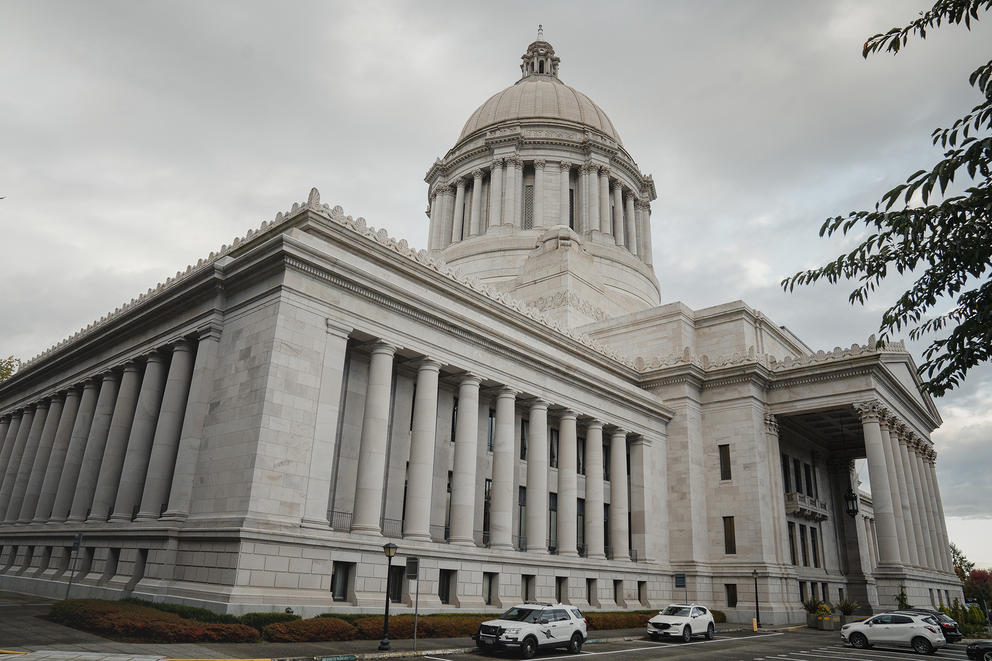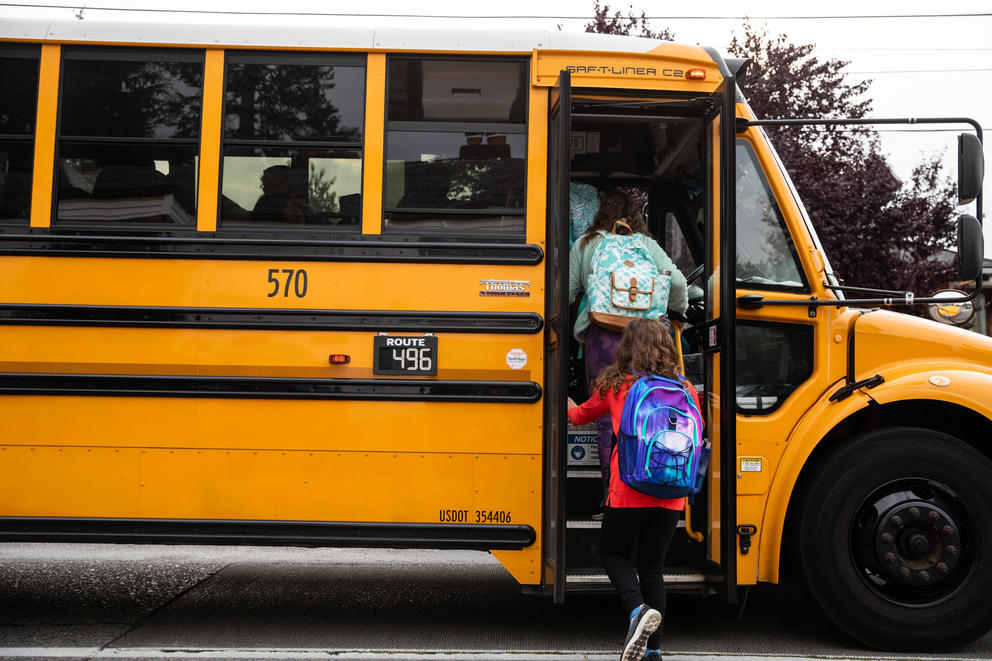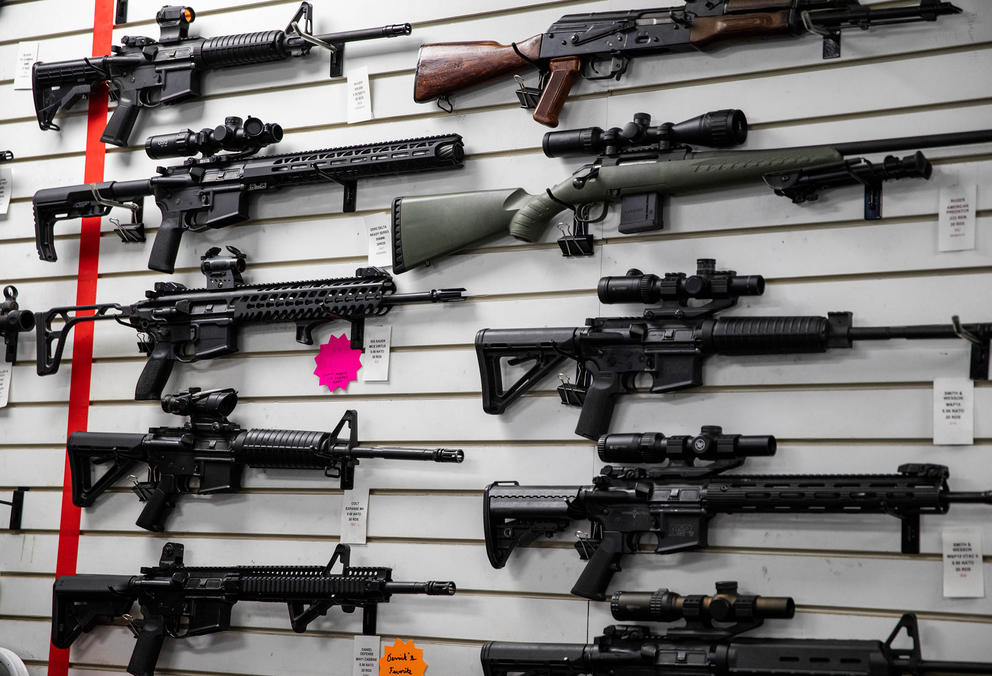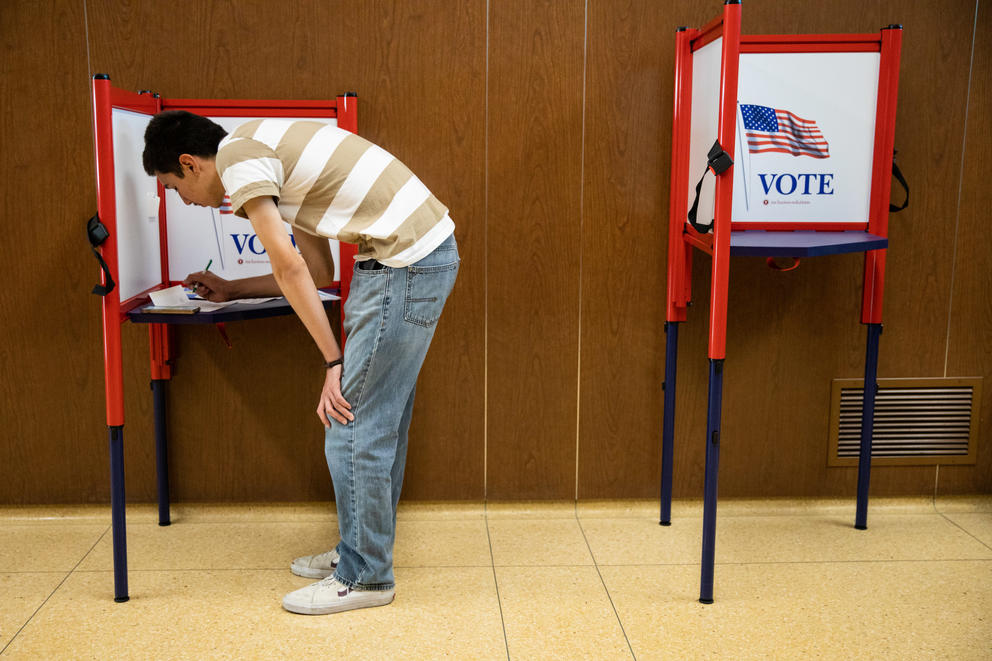WA Legislature OKs 3 initiatives, leaving tax measures for ballot
Voters in November will decide on initiatives to repeal the capital gains tax and the cap-and-invest program and to change the long-term care insurance payroll tax.

The Washington State Capitol Building in Olympia, in a 2020 photo. (Jovelle Tamayo for Cascade PBS)
The Washington Legislature approved loosening police-pursuit restrictions and passing two other initiatives submitted by public petitions. That leaves three initiatives to be addressed in the November election.
The Senate approved removing some police-pursuit restrictions 36-13, with the opposing votes all coming from Democrats.The House passed the measure 77-20.
The Senate also passed the initiative forbidding a state income tax 38-11, and unanimously declared parents had rights to medical, academic and disciplinary information on their children. The House passed the income tax initiatives by 76-21 and the parental rights measure by a vote of 82-15. All votes against the three initiatives were from Democrats.
The police-pursuit initiative was the most controversial. It repeals a 2021 law that raised the standard for vehicular police pursuits from “reasonable suspicion” to “probable cause” — the standard typically required for a warrant or arrest – for pursuits involving all but a narrow list of crimes. That list of crimes was expanded in 2023 following an unsuccessful Republican attempt to repeal the entire 2021 law.
Sen. Mike Padden, R-Spokane Valley, said, “Police and law enforcement have been handcuffed in the number of crimes they are allowed to pursue. … off [criminals] go, thumbing their noses at law enforcement.” He added that vehicle thefts have significantly increased since 2021 because police pursuits were restricted.
In voting against the initiative, Sen. Patty Kuderer, D-Bellevue, worried that a broken taillight or loud music could trigger a police pursuit. Sen. Yasmin Trudeau, D-Tacoma, cited innocent bystanders being injured over the small theft or drug possession charge.
The two other initiatives sparked only token discussions Monday because the measures do not change the status quo. Sen. Jamie Pedersen, D-Seattle, said the parental-rights initiative merely codifies rules already set in state education regulations. Meanwhile, there has not been a serious attempt at establishing a state income tax in more than a decade.
Conservative organization Let’s Go Washington, funded by Redmond hedge fund manager Brian Heywood, gathered enough signatures to send six initiatives to the Legislature. The Legislature had the choice to adopt those initiatives or send them to a public vote on the November ballot. Monday’s action removed three from that lineup.
The three remaining initiatives — including one to repeal the new cap-and-invest program that puts a price on carbon pollution — all have complicated fiscal ramifications that do not lend themselves to easy “yes” or “no” votes, without amendments. The Legislature is not allowed to amend initiatives.
Another initiative asks voters to repeal Washington’s new capital gains tax on people earning $250,000 or more on capital gains. The sixth proposal would repeal a 2023 law that taxes paychecks to provide for long-term health care.








